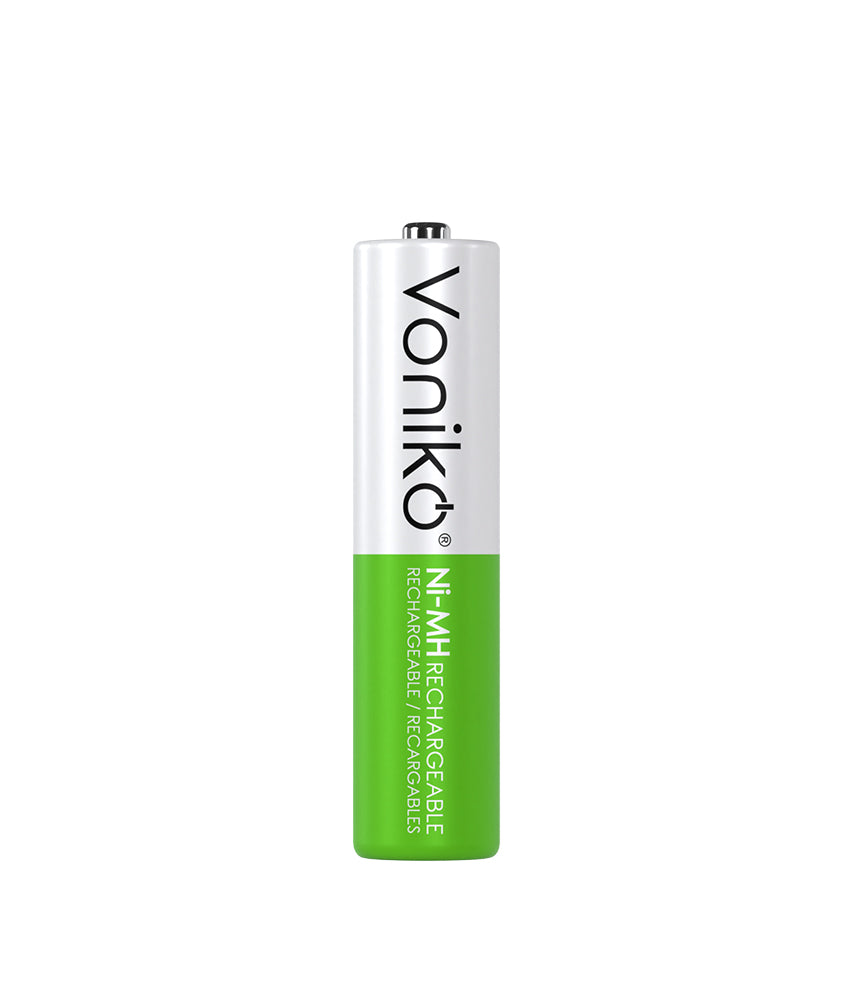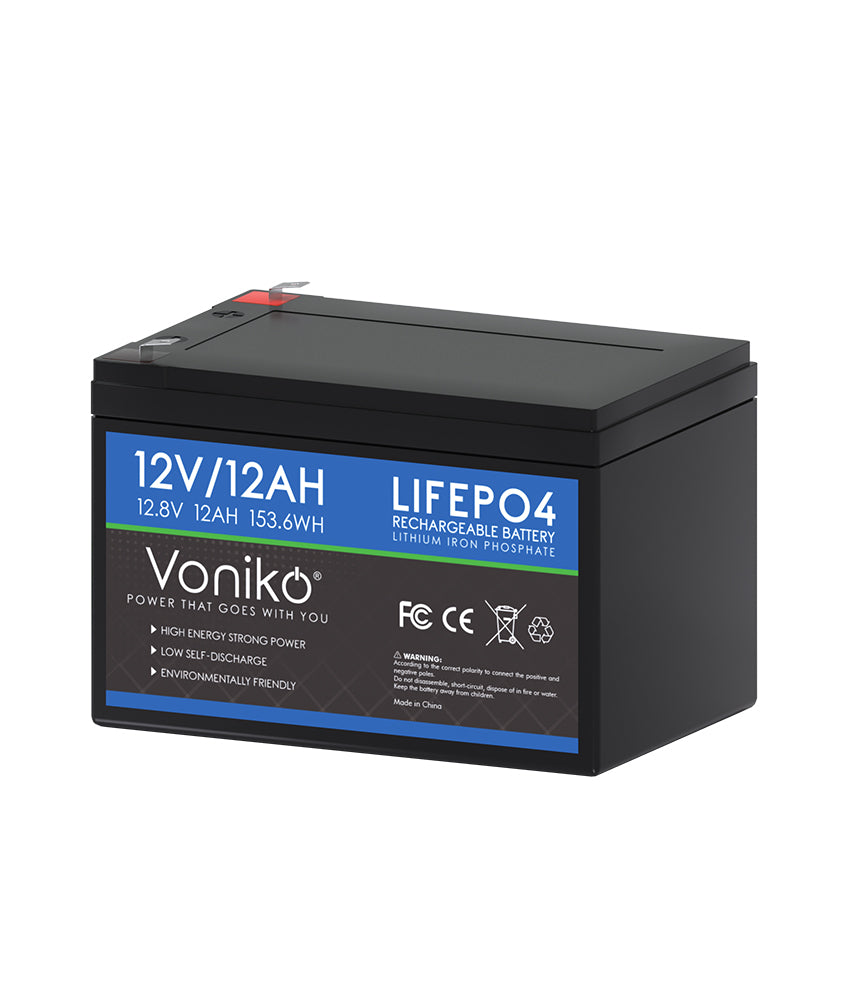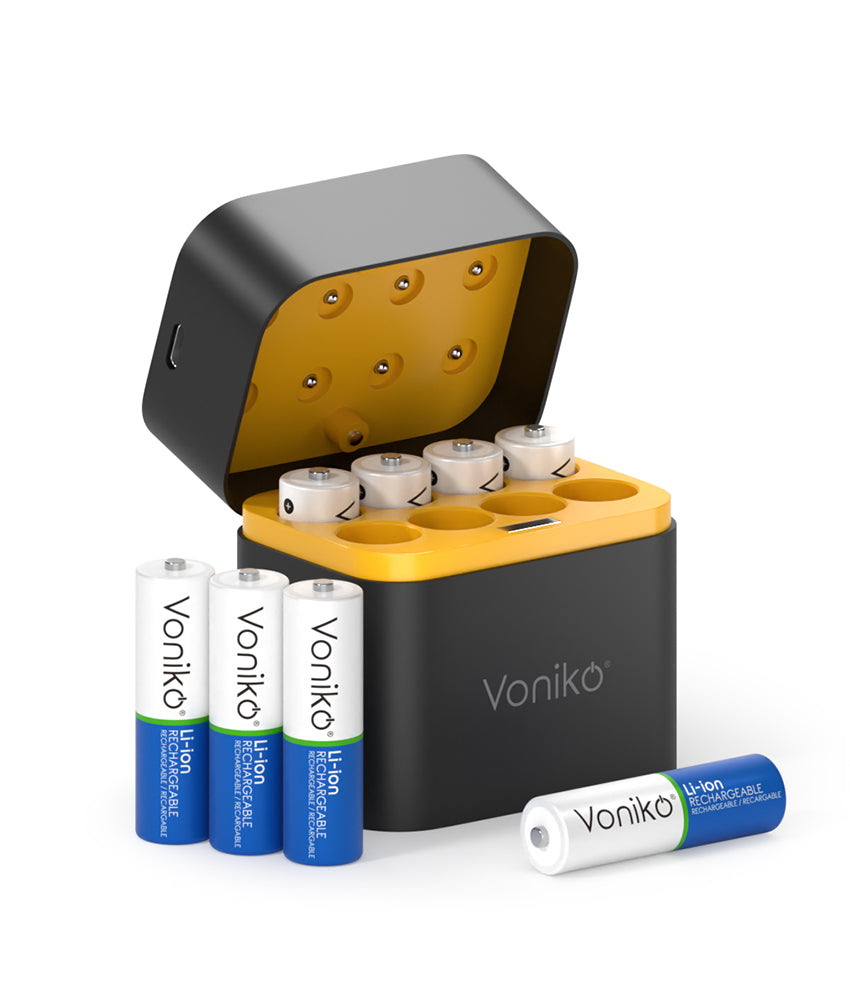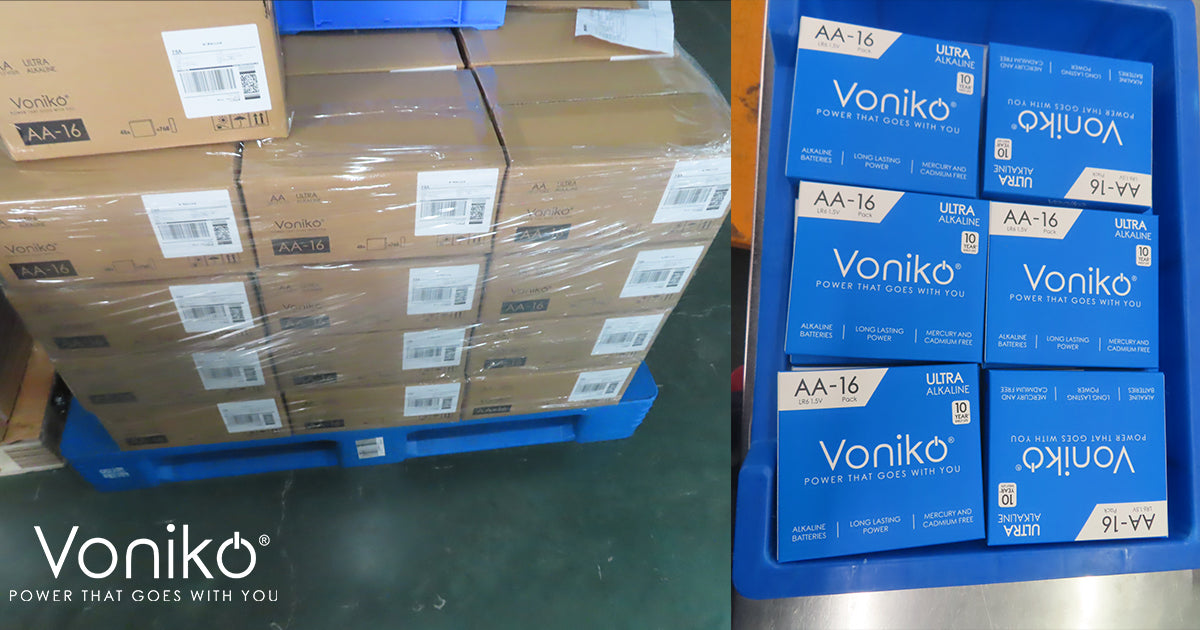Your office printer display is flashing "low battery" again. The wireless presenter remote died halfway through yesterday's big meeting. Three different department heads have asked IT about battery supplies this week. Sound familiar? If your office constantly runs out of AA batteries, you're not just dealing with minor inconvenience - you're looking at productivity losses, frustrated employees, and hidden costs that add up faster than you think.
The solution isn't buying more batteries more often. It's finding the right bulk supplier who can keep your office powered without the constant emergency runs to the office supply store. Let's solve your battery supply problem once and for all.
Why Offices Always Run Out of AA Batteries (It's Not What You Think)
Most offices approach battery purchasing like they're shopping for groceries - buying what they need right now, when they need it. This reactive approach creates a cycle of shortages, emergency purchases, and frustrated employees who can't do their jobs effectively.
The real reasons offices run out of batteries:
Invisible battery consumption: Modern offices use way more AA batteries than most managers realize. Wireless mice, keyboards, presentation remotes, desk accessories, emergency equipment, and seasonal devices all consume power silently. One study found the average office worker uses 15-20 AA batteries annually just for their personal work devices.
Seasonal demand spikes: Holiday decorations, summer outdoor events, and year-end inventory activities can triple normal battery consumption. If you're buying reactively, these spikes catch you completely off guard.
Multiple purchasing sources: Different departments buying their own batteries leads to inconsistent supply, varied quality, and no bulk pricing advantages. Marketing buys premium batteries for their cameras, while facilities grabs whatever's cheapest for basic remotes.
No inventory tracking: Unlike printer paper or office supplies, most offices don't track battery inventory. Batteries disappear into desk drawers, storage closets, and personal devices without any visibility into actual consumption patterns.
Emergency premium pricing: When you run out unexpectedly, someone makes an emergency trip to the nearest store and pays 2-3x normal prices for whatever batteries are available.
The financial impact is bigger than most offices realize. A 50-person office typically spends $800-1,500 annually on batteries when buying reactively, but could spend just $300-500 with proper bulk purchasing - that's over $1,000 in annual savings just from smarter procurement.
What Makes a Great Bulk AA Battery Supplier for Offices
Not all bulk battery suppliers are created equal, especially when it comes to serving business customers. Here's what separates excellent suppliers from mediocre ones.
Reliable inventory and fast delivery: Your supplier should maintain deep inventory levels and offer predictable delivery times. When your office runs low, you need batteries in 1-2 days, not 1-2 weeks. Look for suppliers who stock thousands of batteries and can ship immediately from local warehouses.
Business-friendly minimum orders: Some suppliers require huge minimum orders that don't make sense for normal offices. The best suppliers offer reasonable minimums (100-500 batteries) that balance bulk pricing with practical ordering quantities.
Multiple battery types and brands: Offices need different batteries for different applications. Your supplier should offer alkaline AAs for basic devices, lithium AAs for high-performance equipment, and rechargeable options for frequently used devices. Having one supplier for all your battery needs simplifies procurement and often unlocks better pricing.
Consistent quality across orders: Nothing's worse than getting a batch of batteries that perform differently than previous orders. Premium suppliers maintain strict quality control and offer consistent performance batch after batch.
Business account benefits: Look for suppliers who offer net payment terms, dedicated account management, usage reporting, and automatic reorder programs. These services transform battery purchasing from a recurring headache into a smooth, automated process.
Competitive bulk pricing with clear tiers: The best suppliers offer transparent volume pricing tiers so you can see exactly how much you save by ordering larger quantities. They should also be willing to work with your budget and usage patterns to find optimal order sizes.
Technical support and application guidance: A great supplier helps you choose the right battery types for your specific devices and usage patterns. They can recommend when to use alkaline vs. lithium vs. rechargeable options based on your actual needs.
How to Calculate Your Office's AA Battery Needs
Before contacting suppliers, you need to understand your actual battery consumption. Most offices drastically underestimate their usage, leading to orders that don't last as long as expected.
Step 1: Device inventory audit
Walk through your office and count every device that uses AA batteries:
- Wireless mice and keyboards (check every workstation)
- Presentation remotes and laser pointers
- Desk accessories (clocks, calculators, label makers)
- Conference room equipment (microphones, remotes, timers)
- Emergency equipment (flashlights, radios)
- Seasonal items (decorations, outdoor event equipment)
- Department-specific devices (cameras, medical equipment, tools)
Step 2: Usage pattern analysis
Different devices consume batteries at very different rates:
- High-consumption devices: Wireless mice with backlighting (monthly replacement), presentation remotes with lasers (bi-monthly), digital cameras (per event)
- Medium-consumption devices: Basic wireless mice (quarterly), calculators with displays (semi-annually)
- Low-consumption devices: Wall clocks (annually), basic remotes (annually), emergency flashlights (as-needed)
Step 3: Historical purchasing review
Look at your battery purchases over the past 12 months:
- How much did you spend total?
- What types and quantities did you buy?
- Were there seasonal spikes or emergency purchases?
- Which departments or applications used the most batteries?
Step 4: Growth and contingency planning
Factor in business growth, new equipment, and unexpected needs:
- Add 20-30% to historical usage for growing companies
- Include emergency stock (3-6 months of normal usage)
- Consider seasonal variations and special events
- Plan for equipment changes that might affect battery needs
Real office calculation example:
75-person office with standard equipment:
- 75 wireless mice × 4 battery changes annually = 600 AA batteries
- 25 presentation remotes × 2 battery changes annually = 100 AA batteries
- 50 desk accessories × 1 battery change annually = 100 AA batteries
- Emergency and seasonal equipment = 200 AA batteries
- Total annual need: 1,000 AA batteries
- Recommended order quantity: 1,200-1,500 batteries (includes growth and emergency stock)
How to Check Bulk Battery Suppliers?
Use this checklist to evaluate potential suppliers and ensure you choose one that meets your office's specific needs.
Pricing and terms evaluation:
- Request quotes for 6-month and 12-month supply quantities
- Compare per-battery costs across different volume tiers
- Ask about payment terms (net 30, net 60, etc.)
- Inquire about volume discounts and loyalty pricing
- Get clear information about shipping costs and delivery times
Product quality assessment:
- Request samples of their battery products
- Ask for performance specifications and shelf life information
- Verify they carry reputable brands or high-quality private label batteries
- Check for relevant certifications (ISO, safety standards)
- Ask about their quality control processes
Service capabilities review:
- Minimum order quantities and maximum order sizes
- Available battery types (alkaline, lithium, rechargeable)
- Inventory management and automatic reorder programs
- Account management and customer service quality
- Technical support for application-specific recommendations
Business compatibility check:
- Experience serving office and business customers
- References from similar-sized organizations
- Financial stability and business credentials
- Location and shipping capabilities to your area
- Ability to handle special requests or custom orders
Red flags to avoid:
- Suppliers who won't provide samples or detailed specifications
- Unclear or changing pricing structures
- Poor communication or slow response times
- No business references or unclear business credentials
- Prices that seem too good to be true (often indicates quality issues)
Why Voniko Makes Sense as Your Office Battery Supplier
When evaluating suppliers against this checklist, Voniko stands out as a supplier specifically designed to serve business customers effectively.
Business-friendly ordering: Voniko offers reasonable minimum quantities starting at 100-piece orders, with volume pricing tiers that make sense for office budgets. You can order 6-12 months of supply without massive upfront investment.
Complete product range: From wholesale alkaline AAs for everyday devices to premium lithium AAs for high-performance equipment, Voniko covers all your office battery needs with consistent quality.
Proven performance: Voniko alkaline batteries deliver 40% longer lasting power than competitor brands, while lithium batteries provide 10x longer performance than standard alkalines. This means fewer battery changes and less office disruption.
Quality assurance: As the world's 3rd-largest primary battery manufacturer with 6.5 billion pieces annual capacity, Voniko maintains strict quality standards across all production facilities. Every battery meets the same high-performance specifications.
Business-focused service: Founded in Colorado in 2019, Voniko understands American business needs and provides responsive customer service designed for business customers, not just consumer retail.
Cost advantages: Wholesale pricing offers up to 64% savings compared to retail battery purchases, turning battery supplies from a significant expense into a manageable operational cost.
Setting Up Your Office Battery Supply System
Once you've chosen a supplier, implement a system that prevents future shortages while maintaining cost control.
Establish usage baselines: Track your actual battery consumption for 3-6 months after your first bulk order. This gives you real data for future ordering decisions and helps identify opportunities to switch high-usage devices to rechargeable batteries.
Create inventory management: Designate someone to manage battery inventory and reordering. Set reorder points (when you're down to 3-4 months supply) and establish regular inventory checks.
Standardize battery types: Where possible, standardize on fewer battery types to simplify inventory and increase volume discounts. For example, use the same high-quality alkaline AAs for most applications rather than mixing multiple brands and types.
Implement strategic battery selection:
- Alkaline AAs for low-drain devices (remotes, clocks, basic equipment)
- Lithium AAs for high-performance needs (cameras, critical equipment, emergency supplies)
- Rechargeable AAs for high-usage devices (wireless mice, frequently used equipment)
Plan for special needs: Keep separate inventory for emergency equipment, seasonal activities, and special events. These batteries should be premium types that won't fail when you need them most.
Monitor and optimize: Review your battery costs and usage patterns annually. Look for opportunities to switch devices to rechargeable batteries or upgrade to more efficient equipment that uses less power.
Building Your Emergency Battery Protocol
Even with good planning, offices sometimes face unexpected battery needs. Having an emergency protocol prevents crisis situations and expensive emergency purchases.
Emergency stock levels: Maintain 2-3 months of normal consumption as emergency stock. Store these batteries in a central location with clear labeling and expiration date tracking.
Approved emergency suppliers: Identify 2-3 local suppliers (office supply stores, electronics retailers) where you can buy batteries immediately if needed. Negotiate business accounts for better pricing even on emergency purchases.
Device prioritization: Know which devices are most critical to business operations and ensure they get fresh batteries first during shortages. Executive presentation remotes and conference room equipment usually take priority over desk accessories.
Communication protocols: Establish clear procedures for reporting battery shortages and requesting emergency supplies. This prevents departments from making their own expensive emergency purchases.
Prevention measures: Implement battery testing for critical devices before important meetings or events. Replace questionable batteries proactively rather than waiting for failure.
The ROI of Professional Battery Supply Management
Implementing a professional approach to office battery supply delivers returns that go far beyond cost savings.
Direct cost savings: Wholesale purchasing typically saves 50-70% compared to reactive retail buying. A typical office saves $500-1,500 annually just from smarter purchasing.
Productivity improvements: Eliminating battery-related device failures prevents meeting disruptions, presentation problems, and workflow interruptions. The productivity value often exceeds the direct cost savings.
Administrative efficiency: Bulk ordering with scheduled deliveries eliminates countless small purchasing transactions, freeing up administrative time for more valuable activities.
Employee satisfaction: Reliable battery supplies mean employees' tools always work. This reduces frustration and demonstrates that management pays attention to the details that affect daily work quality.
Professional image: Dead batteries during client presentations or important meetings reflect poorly on your organization's attention to detail and preparedness.
Risk management: Proper battery supplies ensure emergency equipment functions when needed, supporting workplace safety and business continuity planning.
Stop Running Out - Start Planning Ahead
Your office doesn't have to keep running out of AA batteries. The solution is simpler than you think: find a reliable bulk supplier, calculate your actual needs, and implement a proactive supply system that prevents shortages while controlling costs.
The offices that never seem to have battery problems aren't lucky - they're prepared. They've done the math, chosen the right supplier, and created systems that ensure batteries are always available when needed.
Ready to solve your office battery problems permanently? Start by calculating your annual usage, then find a supplier who can deliver consistent quality, reasonable pricing, and business-friendly service. Your employees, your budget, and your productivity will all benefit from taking a professional approach to something as basic as battery supply.
Take action today: Calculate your office's battery needs, request quotes from qualified suppliers, and implement a system that keeps your office powered and productive. Because running out of batteries isn't just inconvenient - it's completely preventable.




















